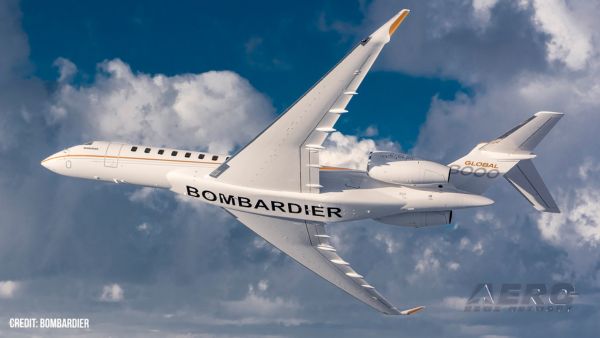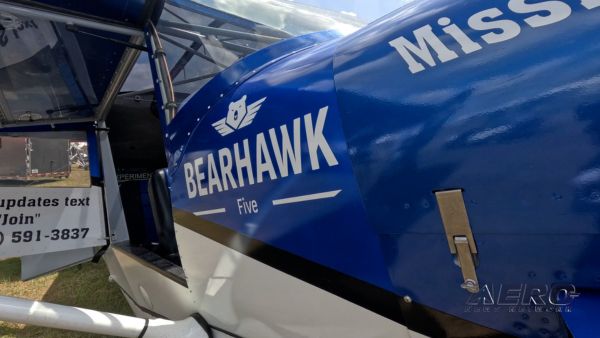Bush Pilots Can Ill Afford New Costs, Industry Says
If the general aviation community needs any more examples of the
harmful ramifications of the TSA's proposed Large Aircraft Security
Program (LASP), one needs to look only at how the ways of life of
many Alaskan pilots would be negatively impacted.
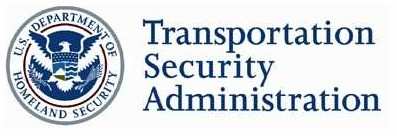
As ANN has reported, the Transportation
Security Administration proposal calls for operators of all
aircraft at, or over, 12,500 lbs. gross weight to implement the
same security standards now in place for commercial airlines. That
includes criminal background checks for all pilots and mechanics...
and checking passengers against the federal "no-fly" list.
In addition to posing new costs for aircraft operators, at a
time when many can barely afford to operate their planes as it
is... industry groups maintain LASP also represents a negligible
safety benefit for the money.
By the TSA's estimates, LASP would cost $1.9 billion to
implement on approximately 10,000 aircraft nationwide affected
under the proposed rules. With owners footing about 85 percent of
the bill, that works out to around $190,000 per aircraft in costs,
according to estimates by the National Business Aviation
Association.
That figure includes the costs of background checks, as well as
for onboard air marshals and new security checkpoints. LASP would
also require some operators of affected planes to relocate their
facilities to airports that have security checkpoints already in
place... which would bring still more costs.
Bart Tiernan, past president of the Alaska Airmen's Association,
told the Alaska Journal of Commerce about 100 freight planes in
Alaska, owned by roughly 25 operators, would be affected. He didn't
know how many privately-owned planes would also be affected by
LASP, but said the number is likely substantial.
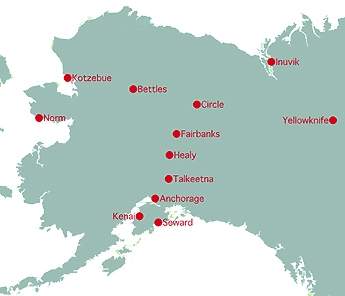
"The reality of this regulations is that it will once again add
another expense, as an unfunded mandate, require aircraft owners to
check their passengers before making a flight and is ridiculous
because these aircraft don't have the range to fly anywhere where
they could be used as a weapon of destruction, " said Tiernan.
The AJC also spoke with several pilots whose operations would be
affected by LASP. Don Ballard, a pilot for Bush Air who uses a
surplus DC-3 to fly building materials and mining equipment to
remote locations in Alaska bush country, says his aircraft would
only be so much 'scrap metal' if LASP becomes reality.
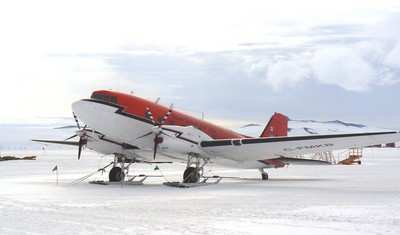
"This proposal is ludicrous," added John Reffertt, co-owner of
two C-119 Flying Boxcars that operate from Palmer Municipal Airport
(PAAQ). "This will force me to move the C-119s, where I am paying
$200 a month, to Anchorage international -- if they will take the
aircraft -- where I will have to pay $2,000 or more a month to park
them."
As with the airlines, LASP would also implement a "prohibited
items list" of what can and cannot be carried onboard an aircraft.
That includes such Alaskan wilderness necessities as certain tools,
knives, and firearms. In fact, LASP would even contradict Alaska
state law, which allows pilots to stow firearms and other items in
emergency survival kits.
Under the TSA's program, only tools or survival gear within
immediate reach of the pilot while in flight would be allowed
onboard.
"The large aircraft security program will impose new and onerous
security regulations and restrictions on owners, operators, pilots,
and passengers, flying in these privately owned aircraft and at
medium and large airports that serve large aircraft," said aircraft
owner Lars Gleitsmann. "In many cases the aircraft that will need
these so called security mandates are not even worth the $190,000
that will have to be spent to make them legal to fly again."
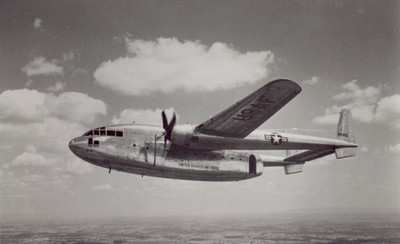
Alaska state politicians are also opposed to LASP. Lee Ryan,
chairman of the Governor's Advisory Board on Aviation, lamented the
costs LASP would represent to what is a $4 billion industry in the
state.
"This will have impacts in an already stressed industry," said
Ryan.
The deadline for public comments on the LASP notice of proposed
rulemaking is February 27. A TSA spokesperson told the AJC the
security agency hopes "to learn more about the concerns of the
aviation community about this anti-terrorism regulation for
aircraft from comments posted on the NPRM docket."
 Aero-FAQ: Dave Juwel's Aviation Marketing Stories -- ITBOA BNITBOB
Aero-FAQ: Dave Juwel's Aviation Marketing Stories -- ITBOA BNITBOB Airborne 05.19.25: Kolb v Tornados, Philippine Mars, Blackhawk Antler Theft
Airborne 05.19.25: Kolb v Tornados, Philippine Mars, Blackhawk Antler Theft Klyde Morris (05.19.25)
Klyde Morris (05.19.25) Airborne-NextGen 05.20.25: Drone Regs, Zero-Emission Cargo, Door-Dash Drone
Airborne-NextGen 05.20.25: Drone Regs, Zero-Emission Cargo, Door-Dash Drone Airborne Affordable Flyers 05.22.25: RV-15 Finalizing, OSH NOTAM, Kolb v Tornado
Airborne Affordable Flyers 05.22.25: RV-15 Finalizing, OSH NOTAM, Kolb v Tornado




